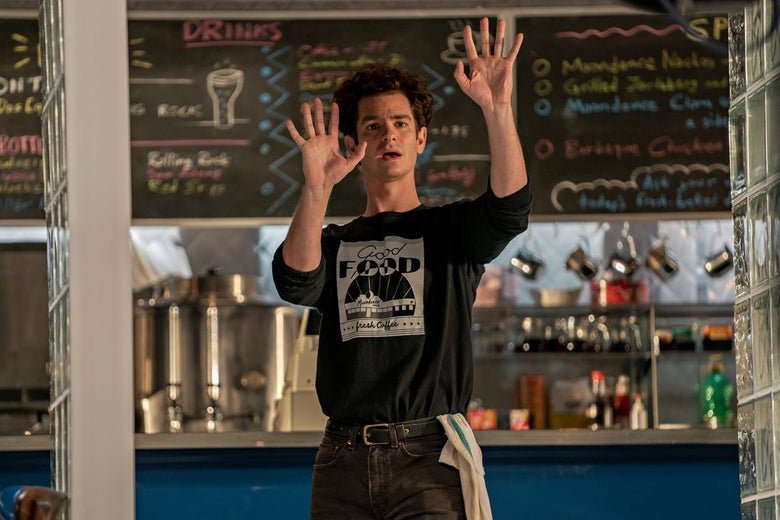Tick Tick Boom: Perseverance vs. Compromise
Before there was Rent, there was the failed dystopian Superbia.
Based on the autobiographical one-man show by Jonathan Larson, Tick Tick Boom is a meta-musical that explores what we are willing to put ourselves into to achieve our dreams.
Jonathan Larson (Andrew Garfield) is about to turn 30 and has been working on the musical Superbia for eight years. He is about to get his big break with a workshop for the musical but hasn’t written a key song for its second act. While finishing the play, his roommate is moving out, his girlfriend is thinking about excepting a job outside the city, and a close friend of his has aids. Tick Tick Boom refers to the pressure Larson is feeling to achieve something before he hits the age of thirty and time is running out. He is overfilled with a passion he wants to share with the world.
Andrew Garfield plays Larson as a frustrated artist with confidence and ambition. In every scene, he can convey the urgency of his current state of life that puts the audience in a state of their anxiety. He has to balance the frustration that comes with having something to share but no way to share it and maintaining a presence in reality. This is Andrew Garfield’s best role since Silence. After shedding his Spider-Man persona and diving into theater and indie films he can bring charisma and emotional intelligence that creates a mesmerizing performance.
Meanwhile, Larson’s friends represent the idea of compromise as they have settled for something else when their dreams didn’t work out. Michael is an ad executive who left acting after years of small roles. Jonathan’s girlfriend was about to get her big break when she suffered an injury and moved on to pursue teaching. When it seems like Jonathan’s dreams will become a reality it is ripped away from him and he realizes he has to start from the beginning. This is something people go through daily, if your dream doesn’t happen do you start at square one again, or do you move on?
Director Lin-Manuel Miranda uses the two hours as a thank-you note to Larson who is a huge inspiration to him. It is one big tribute to artists chasing their dreams. The film feels like a collection of instances in Larson’s life that uses the songs he left behind to build out the story. Since there are missing pieces because of limited source material the end feels a bit rushed.
The main takeaway is as an artist you have to learn from your mistakes and keep moving forward to refine your craft. It is a reminder that time can run out soon.
